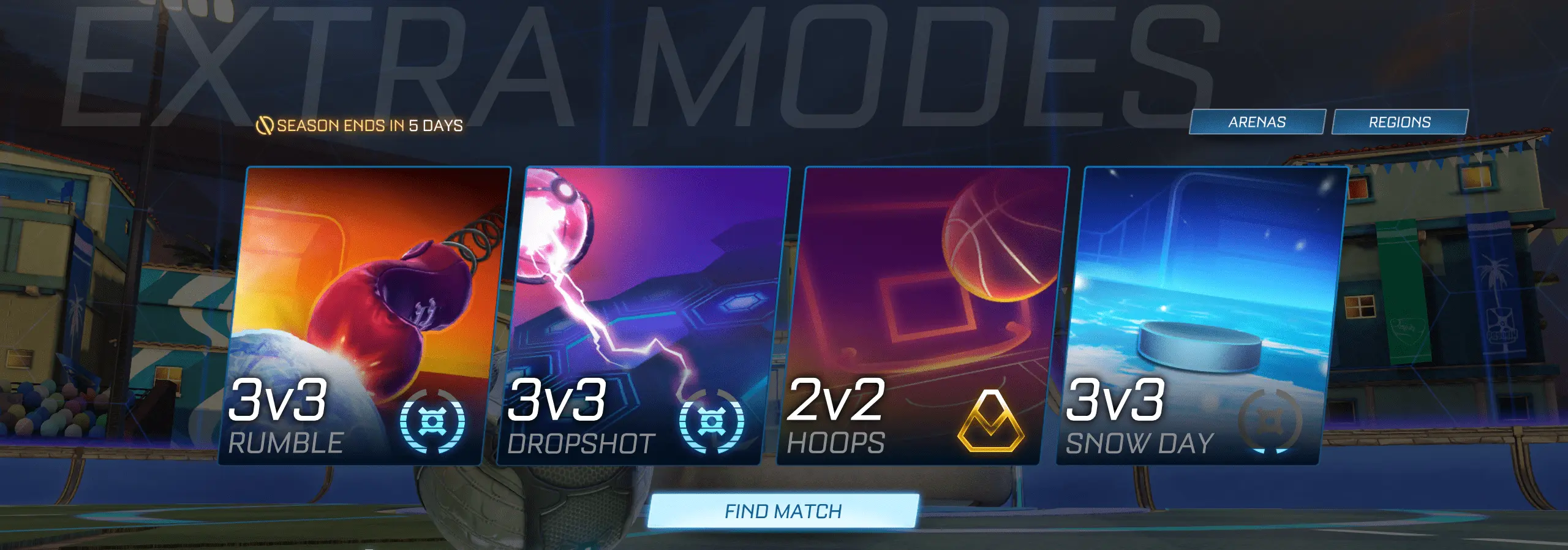BEST VIP CLUB!

BEST VIP CLUB!
200% Bonus

Rocket League is a blend of soccer and vehicular chaos that has captivated millions since its release in 2015. The competitive scene has evolved significantly, and understanding the ranking system, particularly the nuances of the Matchmaking Rating (MMR), is crucial for those aiming to climb the ranks.
In this article, we will explore how MMR and the ranking system in Rocket League work, as well as offer tips to help you better understand and optimize your competitive progress.
MMR (Matchmaking Rating) is a hidden metric that determines your skill level in Rocket League. That means that you can’t see MMR in Rocket League game.
While ranks like Gold, Platinum, or Champion are visible, MMR is the actual number that determines those ranks. Every time you play a competitive match, your MMR increases or decreases depending on whether you win or lose, and based on your opponents' MMR.
MMR is important because it matches you with players of a similar skill level, ensuring a balanced and competitive environment. The system behind MMR uses a complex algorithm to provide the fairest matchmaking possible.

If you're looking to find your MMR (Matchmaking Rating) in Rocket League, the game itself doesn’t show it directly within the client. However, you can use a few external methods to track your MMR.
If you're looking to find your MMR (Matchmaking Rating) in Rocket League, the game itself doesn’t show it directly within the client. However, you can use a few external methods to track your MMR.
BakkesMod: Although the popular Alpha Console was discontinued in 2020, its core features have been integrated into BakkesMod. By installing BakkesMod, you can access various tools, including the ability to view your MMR in real time. Just download BakkesMod from their official site and follow the instructions to set it up for accurate MMR tracking.
Rocket League Tracker Network: Another effective way to view your MMR is through websites like Rocket League Tracker Network. These platforms display detailed player stats, including your MMR. Simply visit the site, input your Rocket League username, and explore a range of stats, such as your MMR and competitive ranks.
Here is how to check MMR in Rocket League:


There are 23 Rocket League ranks in total, divided across various tiers — from Bronze I to the prestigious Supersonic Legend. Each rank, except for Supersonic Legend, is divided into four divisions (e.g., Platinum I – Division IV).
Here's an overview of the main ranks in Rocket League:
The amount of MMR required to reach each rank varies depending on the game mode (1v1, 2v2, 3v3). For example, reaching Platinum I in 2v2 may require a different MMR compared to 1v1.
Typically, after each match, your Rocket League MMR adjusts by a small number of points, usually in the range of 6-12 points. This adjustment depends on several factors:
MMR Rocket League is based on a modified version of the Elo system, commonly used in chess and other competitive games. The system tries to predict the outcome of a match based on the teams' MMR and adjusts accordingly, depending on how accurate that prediction was.
Factors influencing MMR changes:


At the beginning of a new season, your rank will be reset, and you'll need to complete placement matches to determine your initial average rank in Rocket League.
However, your MMR is not reset; it remains hidden. Depending on your performance during these matches, your rank will be adjusted accordingly, ensuring that you are not placed with opponents far below your skill level at the start of the season.
Moreover, MMR decay is absent in Rocket League, meaning if you take a break from the game, your rank remains unchanged. Your Rocket League MMR will not decrease over time, unlike in some other games.
Competitive game modes in Rocket League include 1v1 (Duel), 2v2 (Doubles), 3v3 (Standard), and Extra Modes such as Hoops, Rumble, Dropshot, and Snowday. Each mode has its own MMR value, meaning you could be a Grand Champion in 2v2 but only a Diamond in 3v3.
Here are general guidelines for the MMR ranges for each rank in standard modes (though these may vary seasonally and regionally):
These values are approximate, and the exact amount of MMR needed for each rank may fluctuate slightly between seasons and regions. For example, MMR requirements in North America may be slightly higher than in Europe due to player density and skill distribution.


Your MMR determines the players you will be matched with in competitive games, so understanding how it works can help you become a more strategic player. Here are a few things to keep in mind:
Understanding the MMR and ranking system in Rocket League is vital for anyone serious about improving their performance in the game. MMR determines your rank and ensures you are matched with players of similar skill, making the gameplay experience fair and balanced according to your abilities.
No comments yet! Be the first one to react